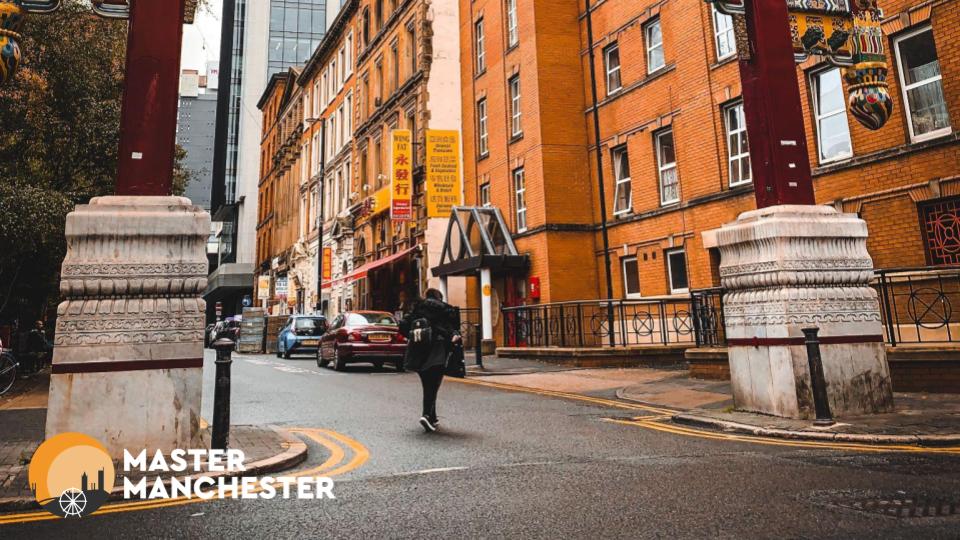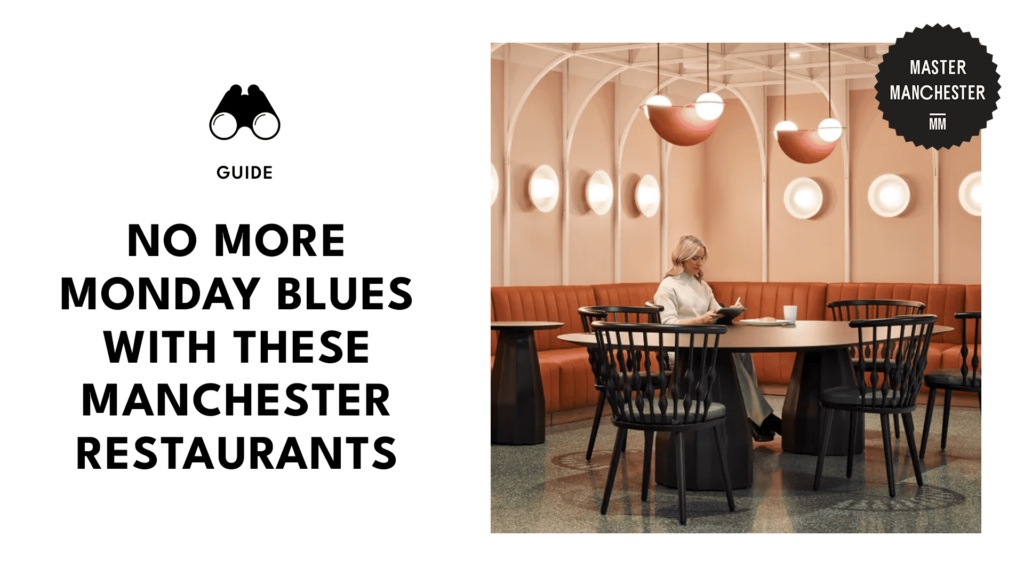Categories > Guides and Tips

Quality of Life in Manchester: What It’s Like to Live There
- Quality of Life in Manchester
- Housing in Manchester
- Food Expense in Manchester
- Job Opportunities in Manchester
- Safety in Manchester
- Healthcare in Manchester
- Transportation in Manchester
- Other Factors that Affect the Quality of Life in Manchester
- Diversity in Manchester
- Mental Health in Manchester
- Lifestyle in Manchester
- Our Final Thoughts
- FAQs about the Quality of Life in Manchester
Manchester is a popular destination for both expatriates and internal migrants. This is thanks to the city’s rich history and culture, along with its welcoming people and vast livelihood opportunities.
However, just like any city, there are pros and cons to moving to this area. In this article, we are going to take a deep dive into the quality of life and this city and whether or not it’s the right place for you.
Quality of Life in Manchester

Manchester is one of the UK’s most comfortable places to live in. In fact, according to Numbeo, it has a quality life index of 153.65 as of February 2023 because of its good climate, purchasing power, and health care services.
This is 15% higher compared to nearby cities such as London, which only has a score of 131.12. On the other hand, it also ranks lower than Liverpool which has a 172.31 quality of life index rating.
Here is more information on the various aspects that affect the quality of life in Manchester.
Housing in Manchester

| Type of Housing | Cost of Renting | Cost of Buying |
| Apartment in City Centre | £700 to £1,500 | £120,000 to £500,000 |
| House in the Suburbs | £800 to £3,000 | £150,000 to £500,000 |
There are two types of housing options in manchester. The first one is the selection of modern apartment (serviced apartment manchester) buildings in the city centre.
This is a popular choice among young professionals and students in the area. These tend to be accessible to shopping centres, restaurants, and other entertainment establishments.
A one-bedroom apartment in this area starts at £700 to £1,500 per month. The rent price can increase as much as £1,000 – £2,000 for those who prefer a bigger space.
On the other hand, there are also many residential neighbourhoods in the city. They provide a suburban feel, which makes them a popular option among families.
Houses here typically have three bedrooms and would cost £800 to £2,000 per month in terms of rent.
Here, there is an option among terraced, semi-detached, or bungalow homes in neighbourhoods such as Didsbury, Chorlton, Sale, and Altrincham.
As for those who prefer to buy a property instead of renting, an apartment in the city centre starts at £120,000, while a home in the suburban area would cost between £150,000 to £750,000.
Food Expense in Manchester

Of course, the cost of living depends largely on the lifestyle of an individual. However, it is significantly more affordable to live in Manchester compared to other nearby places.
Since the city offers a diverse food scene with a lot of local options, there is competitive pricing among restaurants in the area — which residents can benefit from.
For instance, a midrange restaurant only costs between £10 to £20 per person. This is significantly cheaper when compared to London where it costs £20 to £30 per meal.
As for those who prefer to cook their own food, a weekly grocery for one person only costs around £30 to £40. This is thanks to a selection of local supermarkets and retailers.
Job Opportunities in Manchester

Manchester is known for its diverse range of industries. With this comes a lot of job opportunities that attract professionals from other cities and countries.
The key sectors here are finance, creative, digital, healthcare, manufacturing, and logistics. Here is the average salary of the most popular position in these industries:
| Position | Average Annual Salary |
| Accountant | £30,000 – £45,000 |
| Software Developer | £30,000 – £50,000 |
| Marketing Manager | £30,000 – £50,000 |
| Registered Nurse | £24,000 – £37,000 |
| Operations Manager | £35,000 – £55,000 |
| Retail Sales Associate | £15,000 – £20,000 |
Of course, these salaries can increase depending on the level of experience and skills of the employee.
It is also worth noting that the salaries of employees in Manchester can be lower when compared to bigger cities nearby. However, the low cost of living in the area can offset the salary to some extent.
Safety in Manchester

Manchester is a safe city with a low crime rate of only 10.9 crimes per month. This is because the police, the local authorities, and the city work hand-in-hand to ensure the well-being of its residents and tourists.
Although it occurs rarely, some of the most common crimes in the city are burglary or theft. With this, we suggest that you be wary of pickpockets and invest in any good alarm system (alarm system manchester) if you choose to move to Manchester.
This is especially true if you want to move to areas where the crime rate is notably higher, such as Rochdale and Bolton.
On the other hand, some of the safest neighbourhoods in Manchester are Rusholme, Chorlton, Fallowfield, and Didsbury.
Healthcare in Manchester

One of the best things in Manchester is that it has an active National Healthcare Services in the area. This makes most of the medical concerns of its residents free — or affordable at the very least.
Unfortunately, you need to fit the criteria of being ‘ordinarily resident’ in the UK before you can experience its benefits.
As for those who will not qualify, many insurance (insurance agent manchester) companies can assist you in securing your medical coverage.
Furthermore, there are also many private professionals and clinics who can assist you in case you need medical assistance but do not have insurance.
On top of this, there are also many pharmacies across the city which are ready to provide over-the-counter remedies and advice for simple health concerns.
Transportation in Manchester

Manchester is an accessible city thanks to its good urban planning. It has a wide range of transportation systems that can be enjoyed by both its residents and tourists.
Trains and trams are the most popular mode of public transportation in the area. This is thanks to the city’s extensive railways that cover almost the entire Manchester.
With this, there is also a network of connecting bus routes that helps residents reach areas that the railways could not.
Furthermore, the city also has good infrastructure for those who prefer a more environmentally friendly means to travel. If you only need to travel for a short distance, you will not have any issues moving around by cycling or walking.
Of course, there are also taxis available in the area. Here you have an option to simply hail an available ride on the road, or you may also make use of the many taxi services (taxi service manchester) in the city.
Alternatively, you may also make use of the many car-hailing mobile applications that are operational in manchester.
Another good thing about Manchester is that it has its own airport. This will offer an option to conveniently fly throughout the UK or other countries.
Other Factors that Affect the Quality of Life in Manchester
Aside from the accommodation, cost of living, healthcare, and transportation — there are also other factors that affect the quality of life in Manchester.
In this section, we are going to tackle other important things that one should consider before making their big move to the city.
Diversity in Manchester

Since there are many internal migrants and expatriates in Manchester, it is no wonder that there is a wide diversity in the area.
According to Population Data, here is the breakdown of dominant ethnic groups in the city as of 2022:
| Ethnic Group | Manchester Population | Greater Manchester Population |
| White | 66.7% | 79.8% |
| Asian | 17.1% | 10.1% |
| Black | 8.6% | 2.8% |
| Mixed Race | 4.7% | 2.3% |
| Arab | 1.9% | 0.5% |
| Other | 1.2% | 0.6% |
Here they have people from various cultural and ethnic backgrounds. With this, the local government of Manchester makes efforts in promoting inclusion, such as the Manchester International Festival — which celebrates the heritage of various communities that are present in the city.
Furthermore, the city is also welcoming to the members of the LGBTQIA+ community. It has a gay village and it holds an annual Manchester Pride Festival.
On top of all of this, the residents of Manchester are generally known to be hospitable, helpful, and understanding — making it a great place to foster diversity and equality.
Mental Health in Manchester

Mental health issues are a global concern, and the same is true even in Manchester. Unfortunately, there have been studies where one in three people in the city needed mental health services for themselves or a relative in the last three years.
Luckily, the National Health Services cover most of the mental health needs of the residents in the city.
On top of this, there are also private mental health institutions that can take care of patients’ specific needs.
With their wide range of options in terms of psychologists, psychiatrists, counsellors, and other professionals, there is definitely no shortage of help for those who are struggling here.
Furthermore, there are also community-based support groups and charities that can assist those who cannot wait for the NHS waiting list or cannot afford private institutions, such as Hub of Hope and Thinking Ahead.
With all of this said, it is fair to say that Manchester is not immune when it comes to mental health concerns that many people all over the world are facing.
But the good thing is, both the government and private sector of the city are doing their part in supporting its residents.
Lifestyle in Manchester

Because of Manchester’s diverse population, it offers various lifestyles depending on a person’s priority.
For instance, there are many learning institutions across the city where students can enjoy easy access to everything that they need. In close proximity to universities and schools are cafes where one can eat and study at the same time.
Along with this, there are also many clubs and bars where the young ones can enjoy themselves during their breaks.
As for those who are working, there are also many accessible food establishments nearby offices. Furthermore, there is also a wide selection of shopping centres where one can relax.
Another good thing about Manchester is that it is rich in sports culture. In fact, it is one of the unifying traits of the city.
There are two major football clubs such as The Manchester United and Manchester City — which have their own world-famous stadiums and regularly host sporting events.
Aside from this, Manchester also holds one of the largest annual running events in the country which is called the Great Manchester Run.
However, what makes the lifestyle in Manchester stand out is its proximity to the outdoors. Despite having everything that a bustling city can offer, it is still surrounded by beautiful countryside and within reach of the Peak District National Park.
Along with that, it is also home to beautiful greenery such as Heaton Park, Fletcher Moss Botanical Gardens, and Platt Fields Park.
Our Final Thoughts
With Manchester’s affordable cost of living and job opportunities, the quality of life here is definitely high, especially if you compare it to other nearby places.
Furthermore, the diverse population in the city also offers rich culture and lifestyle to those who will move here.
However, it is not exempted from global issues such as safety and mental health concerns. The only difference is that its local government and residents are taking precautionary steps in mitigating these issues.
Overall, we think that there is a bright future for anyone who would move here.





